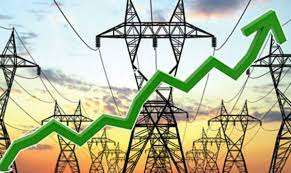Nigeria’s electricity crisis is so bad that people are spending three times more running back-up generators and yet they say solar is expensive
The cost of energy consumed in Nigerian households since December 2021 has been estimated to be close to 23.6 Nigerian naira per kilowatt hour, or roughly 0.06 U.S. dollars, according to a research report on the subject. The cost of industrial electrical energy, on the other hand, was about 38.5 NGN per kilowatt hour, or about 0.09 US dollars. Even today, the cost of power is expected to rise from 38.5 cents to 40-45 cents per kilowatt. Another report from premiumtimeng said that six of the 11 power Distribution Companies (DISCOs) in Nigeria had received authorisation from the Nigerian Electricity Regulatory Commission (NERC) to raise tariff rates starting in February 2022.
According to a NERC memo cited by the NATION on Thursday, the regulator argued that its decision was required in light of an improvement in the performance of the DISCOs’ improvement programs.
On December 29, 2021, the paper was released and jointly signed by NERC chairman Sanusi Garba and vice chairman Musiliu Oseni. Three months ago, in February, the hike went into effect. Port Harcourt Electricity Distribution Company (PHEDC), Kano Electricity Distribution Company (KEDC), and Kaduna Electricity Distribution Company are the organizations (KEDC).
Ikeja Electricity Distribution Company (IKEDC), Ibadan Electricity Distribution Company, and Jos Electricity Distribution Company are more ones (IBEDC). Before raising the tariff, NERC claimed to have taken other variables into account, including the price of gas, inflation, exchange rates, and available generation capacity.
According to the document, users who purchased electricity in January 2022 for N50.72/kWh would begin paying N54.22/kWh in February.
Those who purchased in January 2022 for N56.16/kWh were had to pay N60.67/kWh, while those who purchased in January 2022 for N56.64/kWh were forced to pay N59.64/kWh. Accordingly, the Commission issued the MYTO-2021 Extraordinary Tariff Order effective from July 1, 2021 in consideration of PHED’s CAPEX proposals over a 5-year plan in line with the authorized PIP, after the PIP of the PHED was accepted on April 30, 2021, according to the document.
Therefore, in accordance with MYTO Methodology and Regulations, this MYTO-2022 order restates PHED’s approved 5-year CAPEX and pertinent assumptions used to predict revenue requirements and appropriate tariffs for the years 2021–2026. The Nigerian Electricity Tariff Review Process
Electricity, electricity, electricity. This is the number one issue in Nigeria
When you look at the cost of electricity in Africa’s largest economy, it immediately becomes clear why.
On average Nigerians spend about NGN3,374 ($17) on their monthly electricity bills, according to data from Noip. However, the erratic distribution of power has always compelled folks to seek alternative sources—primarily back-up generators, which bumps up the costs households and businesses spend on electricity quite significantly. On average the monthly cost for the fuel to run these generators adds an additional NGN9,529 ($48) to a household’s bill. That is three times the cost of direct supply.
Yet people say solar is expensive. Is solar really expensive?
vanpeux solarity is the way out, Read more on how to reduce electricity bill


